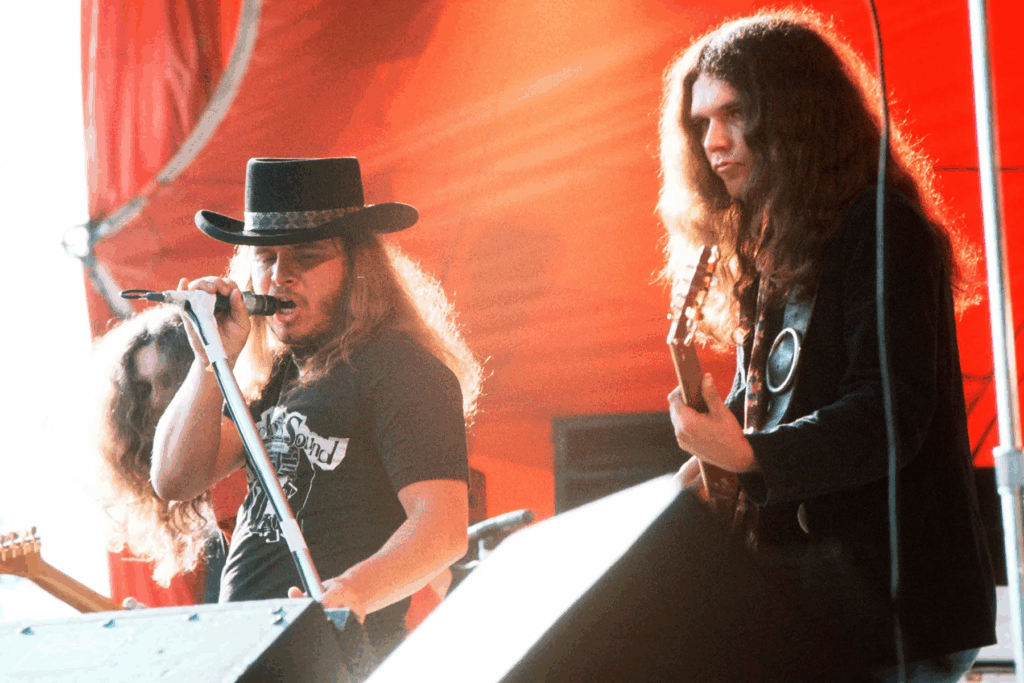Uncategorized
LDT “Remembering Ronnie Van Zant: The Voice of Lynyrd Skynyrd, Lost Too Soon — October 20, 1977”

Early Life & Background
- Ronnie Van Zant was born January 15, 1948, in Jacksonville, Florida.
- He was the oldest of several children in his family (younger brothers include Johnny Van Zant and Donnie Van Zant).
- Before music, he had different aspirations: he played American Legion baseball and once considered a career in boxing or stock-car racing.
- He grew up around Jacksonville’s working-class neighborhoods, which helped shape his worldview and lyric-writing.
Formation of Lynyrd Skynyrd and Rise to Fame
- In the summer of 1964, Ronnie and friends such as Gary Rossington and Allen Collins, who had known each other in Jacksonville high-school-baseball contexts, began jamming and creating what would become Lynyrd Skynyrd.
- The band went through names like My Backyard, The Noble Five, The One Percent, before ultimately adopting “Lynyrd Skynyrd” (a play on a P.E. instructor’s name) in 1969.
- Their breakthrough came with the 1973 debut album Pronounced ‘Lĕh‑’nérd ‘Skin‑’nérd, which featured songs written or co-written by Ronnie such as “Free Bird,” “Simple Man,” and “Gimme Three Steps”.
- In 1974, their second album Second Helping included the song “Sweet Home Alabama,” which became one of the most enduring anthems of Southern rock.
- Ronnie was the primary lyricist and frontman — his voice, presence, and songwriting helped define the band’s identity: a blend of rock, country, blues and Southern pride.
Personality, Influence & Legacy
- Ronnie had a humble, working-class image — he didn’t present as a larger-than-life glam star, but rather someone rooted in his Southern upbringing.
- His songwriting often reflected themes of home, loyalty, life’s struggles, authenticity — which connected with many fans beyond just rock-music audiences.
- His influence stretches far: the sound and attitude of Lynyrd Skynyrd set the template for many Southern rock and roots-rock bands that followed.
- The story behind “Sweet Home Alabama” is particularly interesting: although the lyric seems to target Neil Young’s songs about the South, band members later clarified it was made in a spirit of friendly defiance rather than condemnation.
The Tragedy & End
- On October 20, 1977, a chartered plane (a Convair CV-240) carrying Lynyrd Skynyrd ran out of fuel and crashed into a wooded area near Gillsburg, Mississippi while en route from Greenville, South Carolina to Baton Rouge, Louisiana.
- Ronnie Van Zant died in the crash, along with guitarist/vocalist Steve Gaines, backing-vocalist Cassie Gaines (Steve’s sister), and others including the assistant road manager and the pilots.
- The crash occurred just days after the release of their album Street Survivors (which ironically had imagery showing flames). Following the crash the album surged in attention and became one of their best-charting works.
- Post-crash, the band halted operations and eventually reformed a decade later with Ronnie’s younger brother Johnny as the lead vocalist.
Why He Still Matters
- Ronnie’s untimely death at age 29 meant that his potential was enormous but cut short, which in turn amplified the legend around him.
- Songs such as “Free Bird” became not just rock staples but cultural icons — the pantheon of rock gets rare anthems like that, and Ronnie was central to it.
- His authenticity and Southern roots give him resonance beyond generational divides: his story is not just of a star, but of a region, of identity, of time and place.
- Every year, fans gather, his childhood hometown remembers him, band members and music historians reflect — his influence hasn’t faded.


